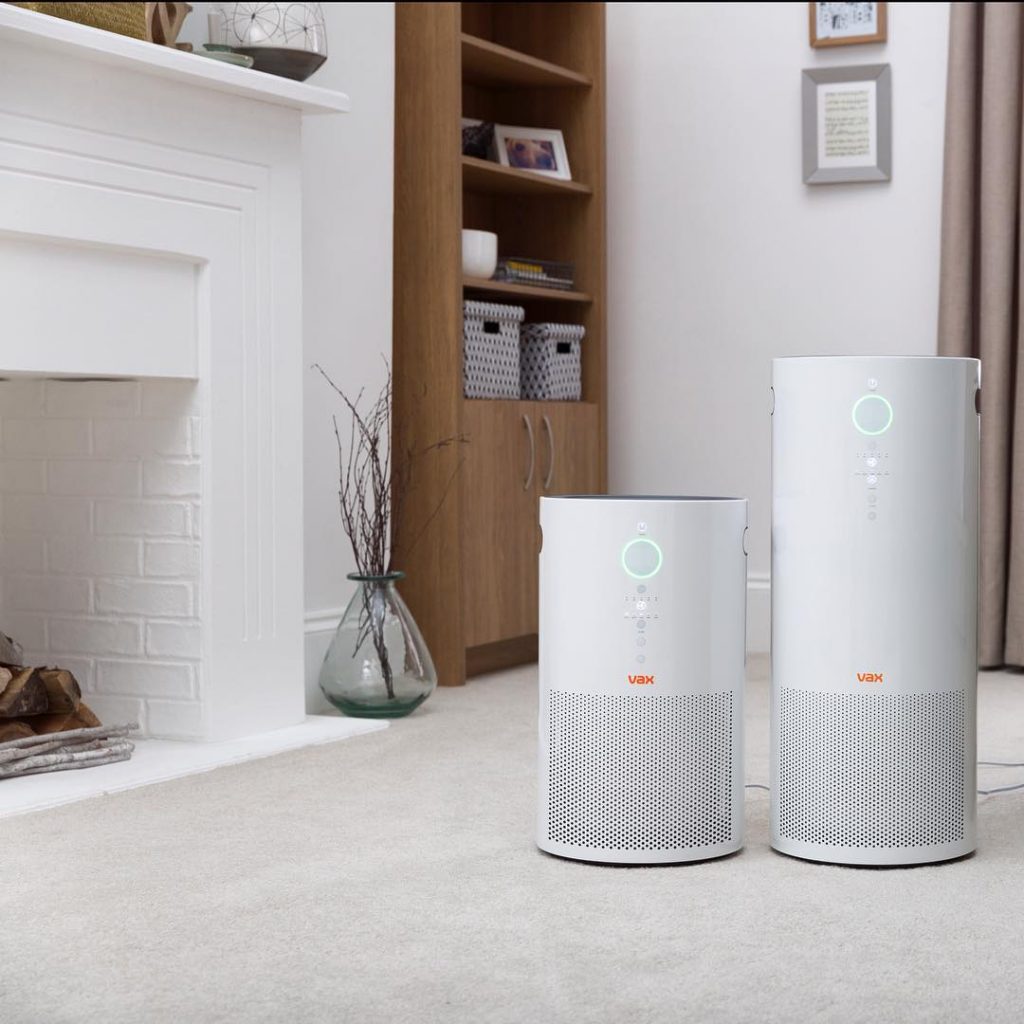
Millions of adults across the UK suffer from allergies and this number is steadily rising 1. Pollen and hay fever dominate discussion during the spring and summer months but there are also many other allergens commonly found within the home. Symptoms likely to be brought on by allergens within the home include sore eyes, a runny nose, sneezing, difficulty sleeping, poor concentration, rashes and congestion. Indoor air can be up to ten times more polluted than outdoor air 2 and every day our lungs breathe in dust, pollen, mould and pet dander.
Keeping pollen levels to a minimum
Through the months of March to August, the level of pollen in the air rises, leading to an increase in the experience of hay fever symptoms and other allergies. In some circumstances, this period starts as early as January and can extend as far as November.
The times with the highest level of pollen in the air are the morning and evening, so try to keep doors and windows closed during these times to protect your home. Regular cleaning of your pet’s fur is recommended to remove any pollen they might have picked up when outdoors. Using an Air Purifier, such as the VAX Pure Air 300 can remove up to 99% of airborne pollutants, allergens and bacteria, including pollen to reduce the effect of allergies and asthma.
Dust and mite reduction
For people who suffer from a dust allergy, they are most likely to come into contact with it inside the home. Symptoms will often show themselves soon after cleaning, due to the disturbance of dust which becomes airborne and enters the respiratory system.
Another issue is the house dust mite: though it is too small for the naked eye to see they live in great numbers within the home, thriving on warmth and humidity. Their bodies and waste contain proteins that cause allergies and can worsen symptoms of asthma 3.
Cutting down the amount of dust and mites within the home can be achieved by vacuuming regularly, washing bedding at a high temperature and using dust mite covers. For a deeper clean, using a carpet cleaner such as the VAX Platinum Power Max Carpet Cleaner, helps remove up to 93% of bacteria and other allergens that are trapped deep within the pile. The hose and upholstery wash tool can be used to clean sofas and other soft furnishings too.
Pets can be allergy pests
Having pets in the home can cause allergic reactions in a variety of ways. For example, shed fur and skin cells can trigger an allergic reaction.
Regular cleaning of pet bedding and the areas they inhabit will help. Regularly vacuuming your carpets can also remove dirt and debris, including pet hair. The VAX Blade 2 Max Cordless Vacuum Cleaner is proven to clean carpets better than the UK’s top 10 cordless vacuums*.
When you buy the VAX Blade 2 Max directly from VAX, you will receive a free toolkit worth over £50 with 5 additional tools. This includes a flexi crevice tool which extends and bends, so you can pick up even more dirt and debris from awkward to reach areas of your home.
Minimising mould and dampness
Mould can be found in a variety of places in the home and can cause allergic reactions from exposure to spores. Opening windows and internal doors to help ventilation throughout the home will help prevent the growth of mould. However, try to avoid letting in air from outdoors during high-pollen hours.
Improving air quality
As well as maintaining strong hygiene in the home to prevent the symptoms of allergy, it is possible to improve the quality of the air we breathe. Allergens in the air, particularly around spring and autumn can induce asthma in seasonal sufferers. A VAX air purifier such as the VAX Pure Air 200 and 300 can help improve the quality of the air in your home. It has a built-in 360° filter that removes 99% of all airborne particles, trapping the dust and pollen particles in the air which reduces the effect of allergies and asthma. If you purchase the VAX Pure Air 300 direct from VAX, you will also receive an additional filter worth £49.99 for FREE.
Understanding what causes allergic reactions in the home can help remove these triggers, leading to better standards of comfort for both inhabitants and guests. A clean home, with reduced allergens, will also reduce experience of the negative effects of pollen, pets and dust. When it comes to allergies, awareness is key.
Allergy UK’s Spring Allergy Awareness Week is the 29th April – 3rd of May. The focus this year is Air Quality and the allergens around us.
1 Allergy UK statistics https://www.allergyuk.org/information-and-advice/statistics
2 The Royal College of Physicians https://www.rcplondon.ac.uk/projects/outputs/every-breath-we-take-lifelong-impact-air-pollution
3 Allergy UK https://www.allergyuk.org/information-and-advice/conditions-and-symptoms/320-improving-your-indoor-air-quality
*Top-20 market data, Jan-Dec 2018 (by sales volume) when tested on carpet according to IEC 62885-2:2016 clause 5.3. Tested in Boost Mode.


















